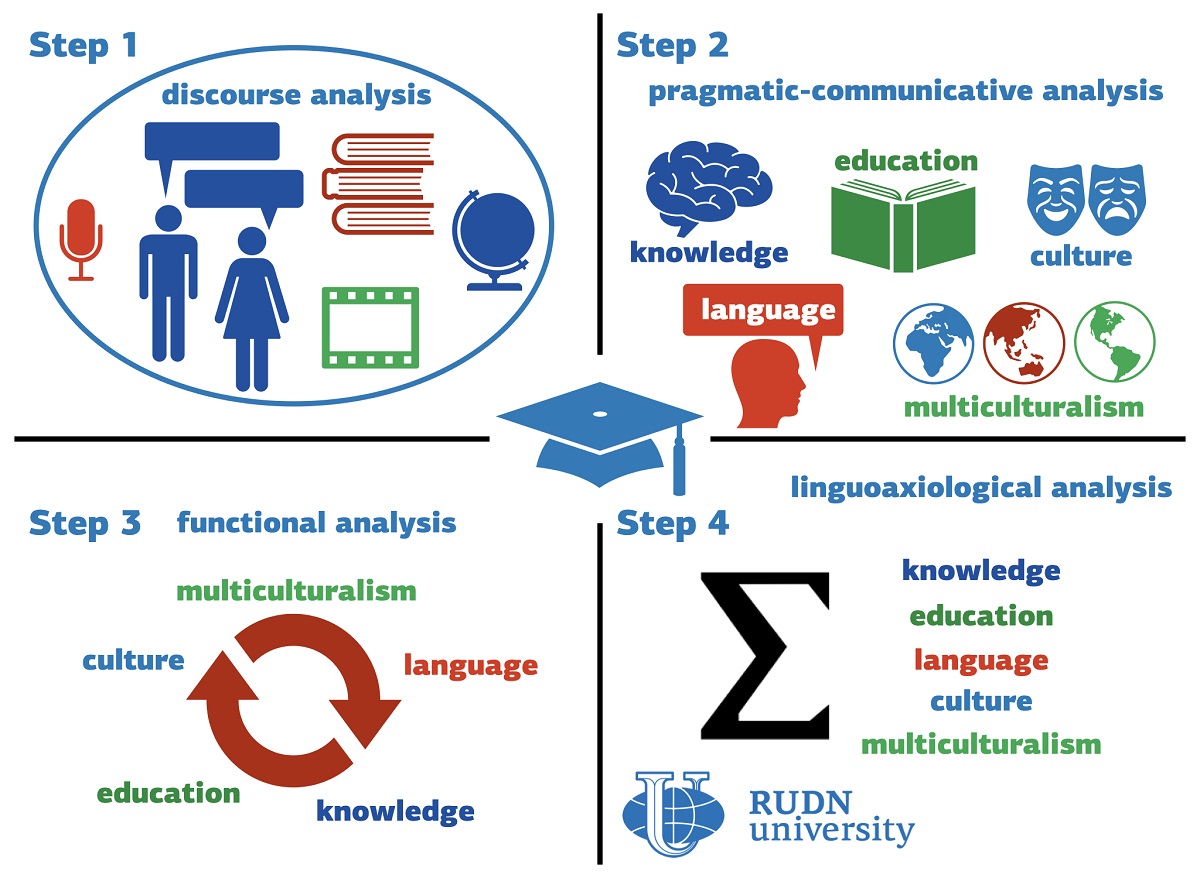RUDN University linguists have proposed a new methodology for learning a foreign language in the field of professional communication
There are many methods and approaches for learning foreign languages in the professional field. However, the tool for deep linguistic and cultural immersion has not yet been developed. The linguists of RUDN University drew attention to this and proposed their own methodology for studying a specialized foreign language, which should solve this problem.
“It turns out that even a relatively good command of the language becomes ’one-sided’ - its basis remains purely formal, it does not reflect any pragmatic relevance or set of values. This is especially true of linguistic knowledge in the professional sphere, ”- Candidate of Historical Sciences Elena Tikhonova, Associate Professor of the Department of Foreign Languages of the Faculty of the RUDN University.
Linguists have noticed that professional language is formed in a certain sequence — first vocabulary, then discourse (or speech), communication and, finally, actually, use. If this algorithm is “transferred” to the study of a foreign language, the following methodology will be obtained — the student analyzes the texts and studies the use of language material, then trains to use it in the classroom, and then the whole complex of skills is tested in direct professional interaction “in real life.”
“No matter how simple and obvious this procedure may seem, it is much more complicated when it comes to correct linguistic analysis,” — Elena Tikhonova, Candidate of Historical Sciences, Associate Professor of the Department of Foreign Languages of the Faculty of the RUDN University.
Linguists have formulated an algorithm for moving from theory to practice. It has four steps. The first, discourse analysis, is needed to form a “raw” basis for the next steps. Then pragmatic-communicative analysis — at this stage, the student studies the meaning of the elements of discourse. The third stage — functional analysis — is needed to establish connections between these elements. The final stage — axiological analysis — summarizes the knowledge gained.
As an example, RUDN University linguists demonstrated the work of the algorithm in their own professional field — the study of a foreign language. The first stage is the formation of a raw base, a foundation. Here linguists have identified five basic concepts — education, language, multiculturalism, culture, knowledge. At the second stage, it is necessary to understand the meaning of these elements. For this, linguists create a kind of axiological tree for each concept. For example, “education” is associated with 12 concepts — learning, rules, experience, system, information, and so on. Each of them branches further. For example, the concept of “system” is associated with “structure”, “method” and so on. The next step is to study the connections between the “branches” of the tree. Finally, the obtained “map” is used to analyze the actual use of the professional language — what terms are used, to which “branch” they belong and how they are combined with each other. As a result, a deep understanding of the laws and culture of professional speech in a foreign language is formed.
In the future, linguists plan to develop specific curricula for learning a foreign language based on the new methodology. At the same time, new developments can be used within the framework of existing methodologies and techniques.
“The proposed method does not imply that all the previous ones are insufficient. On the contrary, we believe that all existing methods and approaches can benefit from the results of our pragmatic and axiological modeling ”, - Elena Tikhonova, Candidate of Historical Sciences, Associate Professor of the Department of Foreign Languages of the Faculty of the RUDN University.
The results are published in Heliyon magazine.
A RUDN agrotechnologist has identified wheat genotypes that are resistant to a dangerous fungal pathogen that infects plants even before the snow melts and reduces yields.
RUDN University engineers have calculated the parameters of a system that can prevent lunar power plants from overheating. These developments will be needed when planning for long-term lunar missions and colonizing the satellite.
Landfills are the third largest source of anthropogenic methane in the world. They account for ~11% of estimated global emissions. Methane is 80 times more powerful than carbon dioxide and is the second largest driver of man-made climate change. Scientists from around the world met at Zhejiang University's Hangzhou campus to determine the best available technologies for recovering energy and materials from non-recyclable residual waste.
